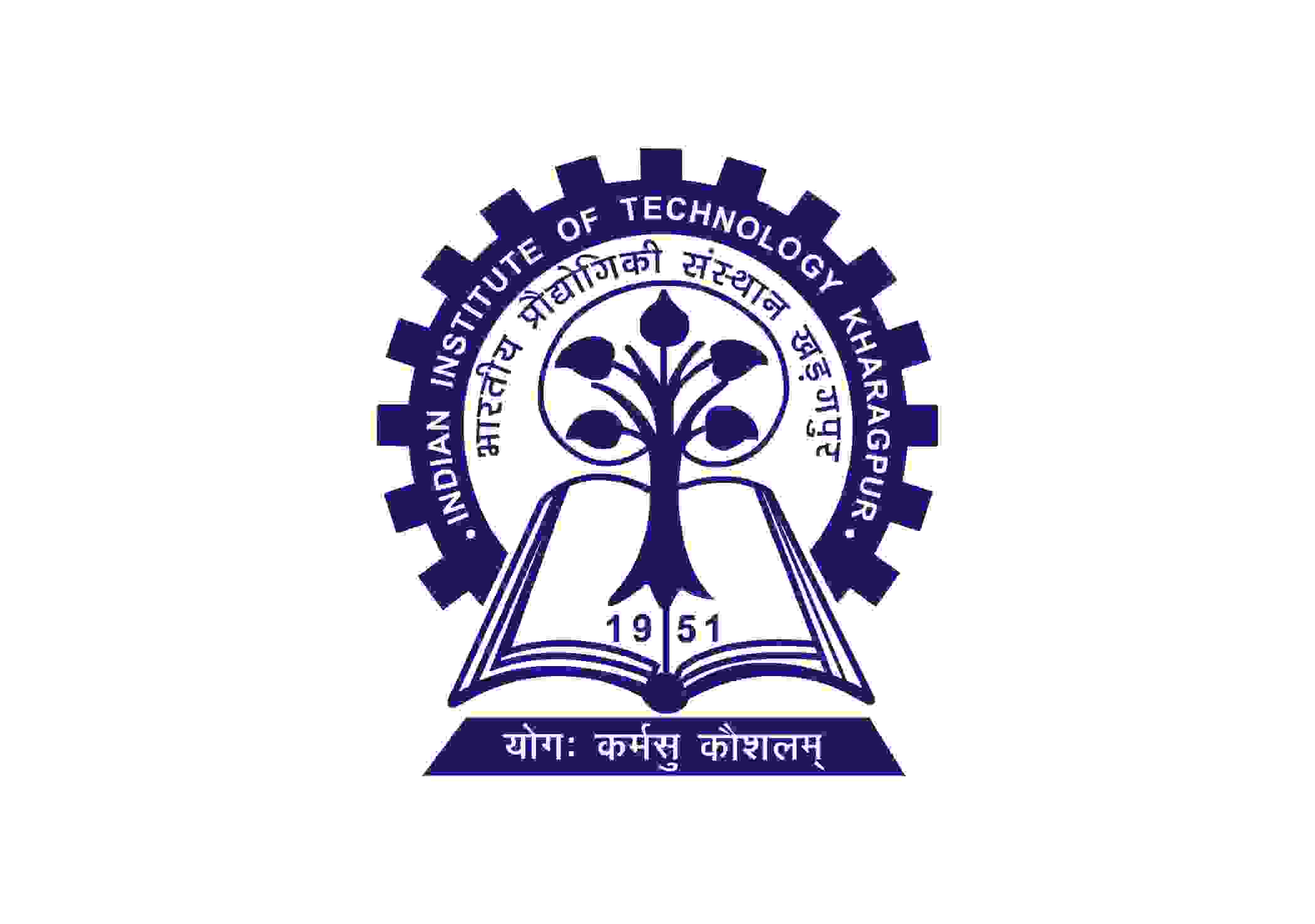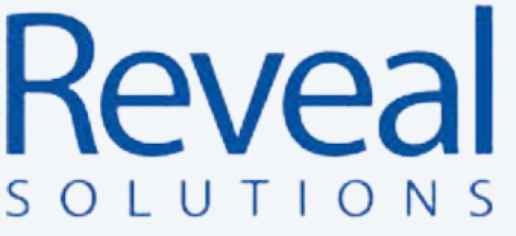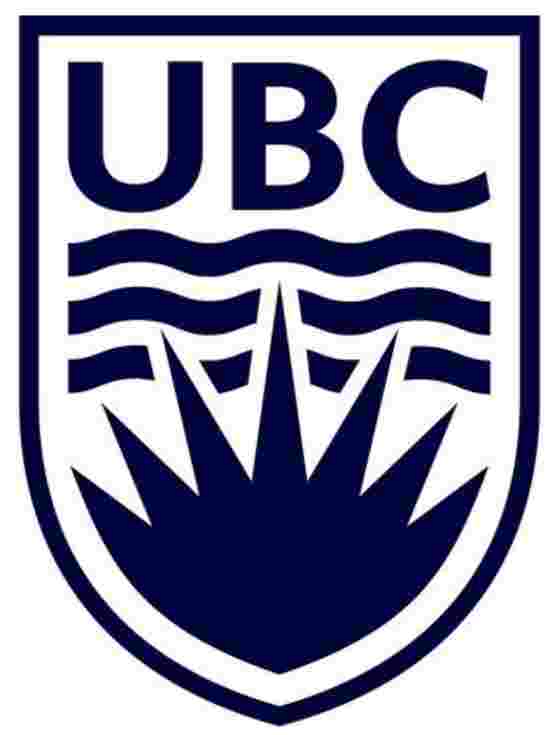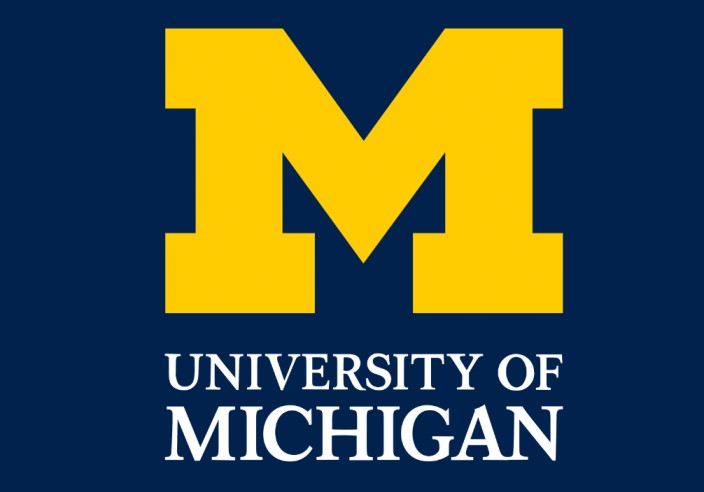Top 10 Data Science Courses with
Placement
for 2026
Ready to launch your data science career in 2026? It is not just about learning the skills it is about landing the job! 🚀 With so many options out there finding a program with real placement support is everything. We have done the heavy lifting for you cutting through the hype to find the best data science courses that are genuinely committed to getting you hired. Whether you are looking for courses in a specific city like Bangalore or you are a working professional aiming for that top data scientist salary this guide will show you the programs that turn learning into a career. Let us dive in!
After years in the data science hiring trenches and personally
mentoring dozens of aspiring data scientists I can tell you this
"Logicmojo's" course you choose is the single biggest factor in
landing your first top tier job. It is not just about learning
algorithms it is about having a strategic partner for your career.
I have seen too many bright students complete a
Data Science course
only to struggle with the job search. That is why I decided to create
this guide. I have gone beyond the brochures to investigate what
really matters dedicated placement teams genuine industry partnerships
rigorous
Data Science interview
prep and most importantly proven placement records.
My analysis boiled down to one simple truth the
best data science courses
are the ones that invest in your success after you have
finished the last module. They don't just hand you a certificate they
guide you until you get an offer letter.
In this guide I have laid out my detailed rankings a comparison table
to see placement guarantees side-by-side and an FAQ section covering
everything from expected
Data Scientist salaries
to navigating placement policies. Whether you are a fresh graduate or
a professional making a switch this is the resource I wish I had when
I started.
Why Choose a Data Science Course with Placement?
In a competitive market, a course with placement support isn't just a feature—it's your strategic advantage.
The competition for data science roles is fiercer than ever. While many programs can teach you the technical skills, the best data science courses go one step further: they bridge the critical gap between learning and earning. A placement-backed program is an investment in your career outcome, providing a structured path with mentorship, interview prep, and industry connections that are crucial for landing your first high-paying job.
₹9.2 LPA
Average Entry-Level Data Scientist Salary in India
90%
of students prefer job-assured programs in 2026
1. Structured Learning
Master in-demand skills from fundamentals to advanced topics like AI & Machine Learning through an industry-vetted curriculum.
2. Real-World Projects
Apply your knowledge by building a strong portfolio of data science projects that impress recruiters and demonstrate your capabilities.
3. Guaranteed Placement
Receive dedicated career support, master data science interviews, and get placed in a top company with a competitive salary.
TOP 10 Data Science Courses With Placements
Compare all DS courses with Price, Curriculum, Duration and Syllabus.
Your Bridge from Learning to Earning
Our commitment doesn't end with a certificate. We provide a comprehensive support system designed to help you launch your data science career with confidence.
-
Guaranteed Placement Programs
Select courses offer a money-back guarantee if you don't secure a job within a specified period, making your investment risk-free.
-
Intensive Interview Prep
Master every stage of the hiring process with mock interviews, resume workshops, and expert guidance on cracking tough data science interviews.
-
Dedicated Career Mentorship
Get personalized 1:1 guidance from industry veterans who help you navigate your career path, negotiate your salary, and achieve your professional goals.
85%
of graduates received job offers within 3 months of program completion.
Our Graduates Work At Top Companies Like






Our Evaluation Criteria
Our commitment is to complete transparency. Here’s the exact framework we use to ensure our rankings are unbiased, data-driven, and trustworthy.
Our 4-Step Research Process
-
In-Depth Material Analysis
We meticulously review course brochures, syllabi, and publicly available learning materials from over 30 top programs.
-
Alumni Interviews & Feedback
We connect with and interview past students to gather firsthand accounts of their learning experience and placement success.
-
Expert Consultation
Our findings are cross-referenced with insights from industry experts and hiring managers to ensure our criteria align with real-world job requirements.
-
Continuous Review Cycle
This list isn't static. We re-evaluate our rankings monthly to reflect new course updates, student feedback, and shifts in the job market.
Explore Data Science Courses
Use our interactive explorer to discover the Use our interactive explorer to discover the Top 10 Best Data Science Courses with Placements in 2026. Get insights into course content, placement support, success stories, and compare your favorites — all in one place.
Logicmojo
Data Science
Community
Meet our vibrant community of Data Scientists, Data Analysts, and Machine Learning Engineers building the future of Analytics.
What You’ll Learn: From Theory to Job-Ready Skills
Our curriculum is designed to make you a well-rounded data scientist, proficient in both the technical tools and the business acumen needed to succeed.
Core Technical Skills
-
Python Programming: Master the #1 language for data science, from basics to advanced libraries like Pandas and NumPy.
-
Statistics & Probability: Build a strong foundation in statistical methods, A/B testing, and probability to make data-driven decisions.
-
Machine Learning & Deep Learning: Implement algorithms for regression, classification, and build neural networks for complex tasks.
-
SQL & Databases: Learn to write complex queries to extract and manipulate data from relational databases, a must-have skill for any data analyst.
-
Data Visualization: Create compelling reports and dashboards to communicate insights effectively using tools like Tableau.
Essential Business Skills
-
Structured Problem-Solving: Learn frameworks to break down complex business problems into actionable data science projects.
-
Data Storytelling: Go beyond numbers and learn to weave compelling narratives that persuade stakeholders and drive action.
-
Stakeholder Communication: Master the art of presenting technical findings to non-technical audiences to ensure your insights have a real impact.
Tools of the Trade














A Typical Project Workflow
Problem Definition
Understand business goals and translate them into a data science question.
Data Collection & Cleaning
Gather data using SQL and clean it with Python libraries.
Model Building & Training
Apply ML algorithms using TensorFlow or PyTorch to create predictive models.
Visualization & Storytelling
Communicate findings and insights using tools like Tableau and Power BI.
Course Recommendation Quiz
Step 1 of 4
Interactive Course Comparison
Get a detailed breakdown of curriculum, fees, placement rates, and more to make an informed decision.
Who Will Benefit Most From Our Courses?
Our programs are meticulously designed to empower a diverse range of individuals ready to make an impact with data.

Freshers from Non-CS Backgrounds
- Eager to kickstart a career in a high-demand field.
- Seeking a structured path from foundational to advanced concepts.
- Aspiring to pivot into data science or AI roles with no prior coding.
- Value hands-on projects and real-world application.

Working Professionals in Tech
- Software Engineers looking to upskill in AI/ML.
- Data Scientists wanting to specialize in GenAI or LLMs.
- DevOps/MLOps engineers keen on data pipeline optimization.
- Seeking career advancement or role transition within tech.

Analysts Seeking AI/ML Upgrade
- Data, Business, or Financial Analysts wanting to enhance skills.
- Ready to transition from descriptive to predictive analytics.
- Looking to automate insights and build intelligent models.
- Seeking to leverage AI tools for deeper market understanding.

Managers & Decision-Makers
- Leaders wanting to guide data-driven teams effectively.
- Business strategists aiming for AI/ML integration into operations.
- Decision-makers seeking to understand AI's strategic implications.
- Project Managers overseeing data science initiatives.
Learning That Fits Your Life
Choose the learning style that best suits your schedule and pace, without compromising on quality or mentorship.
We understand that flexibility is key to successful learning, especially when balancing studies with professional and personal commitments. Our diverse learning formats ensure you can pursue your data science aspirations on your terms.
Mobile Learning Access
Learn on-the-go from any device.
Project-Based Learning
Build a strong portfolio with real-world projects.
Weekend Classes
Ideal for working professionals. Intensive sessions held on Saturdays & Sundays.
Hybrid Learning
Blend of online and in-person sessions for maximum engagement and flexibility.
Fully Online
Access all content, live classes, and resources from anywhere in the world.
Self-Paced with Mentorship
Learn at your own rhythm with dedicated 1-on-1 guidance from experts.
Build Your Proof of Work
Your portfolio is the ultimate proof of your skills. Our courses ensure you build real-world data science projects that get you noticed by recruiters.
Sales Dashboard
Develop an interactive dashboard to track sales KPIs, identify trends, and provide actionable insights for a retail company.
Customer Segmentation
Use clustering algorithms to group customers based on purchasing behavior, enabling targeted marketing campaigns.
Website Funnel Analysis
Analyze user navigation data to identify drop-off points in the conversion funnel and suggest UI/UX improvements.
The Capstone: Your GitHub Portfolio
All your hard work culminates in a capstone project and a polished GitHub portfolio. This becomes your primary tool for job applications, showcasing tangible proof of your skills and experience to hiring managers.
See Example Portfolios →your-name / data-science-portfolio
A collection of projects demonstrating my skills in data science.
Unlock Your Earning Potential: Career & Salary Trends
Completing a placement-focused program is a direct investment in your career. These roles are not only in high demand but also come with significant financial rewards, especially for those with specialized AI skills.
Data Analyst
₹6 – ₹8 LPA
Average Fresher Salary
Data Scientist
₹10 – ₹20 LPA
Average Fresher/Mid-Level Salary
ML / AI Engineer
₹12 – ₹25 LPA
Average Fresher/Mid-Level Salary
A Global Perspective: The International Trend
This growth isn't just in India. Globally, data science and AI roles are exploding. According to the U.S. Bureau of Labor Statistics, data scientist jobs are projected to grow by 35% over the next decade, far faster than the average for all occupations.
This global demand means that holding an advanced certification, especially in areas like Generative AI or MLOps, makes you a valuable asset not just locally, but on the world stage.
+35%
Projected Global Demand for Data Scientists by 2034
(Source: U.S. Bureau of Labor Statistics)
Estimate Your Data Science Salary
Your potential salary is influenced by your role, experience, and specialized skills. Use our calculator to see what you could earn.
1. What is your experience level?
2. What is your target role?
3. What is your specialization?
Your Estimated Salary
Salary Range (6L to 20L+)
Ready to achieve this? Our AI & ML courses are designed to get you there, with placement support included.
Explore CoursesWhy Your Skills Matter More Than Ever
The 2026 hiring landscape has shifted. Employers are no longer just looking at degrees; they are actively hiring candidates with verifiable skills, project experience, and "day-one readiness." This is especially true in data science, where the right skills can lead to a significantly higher Data Scientist salary.
This massive demand, combined with a significant talent shortage, has created the single biggest career opportunity of the decade. Explore the stats below to see the market you're about to enter.
Meet Our Mentors
Our Data Science Course Industry Mentors Demo Class

Monesh has over 6+ years of experience as a Data Scientist and Senior Machine Learning Engineer at renowned organizations, contributing to various projects in Artificial Intelligence. He also has more than 4+ years of teaching experience as a corporate trainer.
Generative AI Mentor @ Amazon, Microsoft
Ranjan is currently working as a senior Developer in Amazon. He has a vast experience of teaching Artificial intelligence.

Senior Generative AI Mentor
Shirhaan working as R & D Group of WalmartLabs as senior Developer.

Senior AI Mentor
Sankalp is from IIT Kgg and worked as a senior developer and AI specialist. He has extensive experience in the field of AI.


The Future of Data Science: Trends for 2026 & Beyond
The field of data science is evolving at an incredible pace. Staying ahead of these trends is not just an advantage—it's essential for a long-term, high-impact career.
Deeper AI Integration
AI is no longer a separate discipline. It's becoming the core of data science. Future roles will demand a seamless understanding of how to integrate sophisticated AI and machine learning models directly into business processes and products.
✓ Why it matters: This moves beyond simple analysis to creating intelligent, automated systems.
The Rise of AutoML
Automated Machine Learning (AutoML) platforms are democratizing model creation. The future data scientist won't just build models, but will manage, interpret, and fine-tune models generated by AutoML tools, focusing on the strategic application rather than the manual coding.
✓ Why it matters: This frees up data scientists to focus on higher-value business problems.
GenAI for Data Analytics
The most significant shift is here. A Generative AI course is becoming mandatory. Using large language models to generate insights, create synthetic data, and even write analytical code will become a standard part of the toolkit. Prompt engineering is the new essential skill.
✓ Why it matters: This dramatically accelerates the speed of insight generation and analysis.
Cloud-Native Machine Learning
The era of running models on a local machine is ending. Proficiency in cloud platforms like AWS SageMaker, Azure ML, or Google's Vertex AI is now essential for building scalable, production-ready ML systems (MLOps).
✓ Why it matters: This is the key to deploying models that can handle real-world scale and data volume.
How Modern Courses Are Adapting
Recognizing these shifts, the best data science courses are no longer just teaching Python and basic algorithms. They now integrate comprehensive modules on MLOps, deep learning frameworks, and feature dedicated training on Generative AI. Choosing a program with a forward-looking curriculum is the most critical step you can take to ensure your skills remain valuable for years to come.
Our Alumni Works At
Our graduates are shaping the future of data science at the world's leading companies.
















































Frequently Asked Questions
Your top questions about data science courses and placements, answered by our experts.
What is the average salary I can expect as a fresher after a data science course?

Why Trust This Expert
With a successful transition into a 20 LPA Machine Learning Engineer role at Cognizant after completing the LogicMojo program, Anjani has direct experience leveraging a certification to secure interviews at top companies like Meta, Cisco, and Paypal. His journey is a testament to how the right program leads to tangible, high-value career outcomes.
Our Evaluation Snapshot
- Expert Vetted: This answer is based on the real-world experience of an engineer who successfully landed a high-paying job post-certification.
- Outcome Focused: Recommendations are prioritized based on a program's track record of high placement rates and successful salary negotiations.
- Practicability: We confirm that recommended programs focus on building a job-ready portfolio of AI projects, which is a key factor in maximizing salary potential.
Yes, as a fresher in 2026, you can realistically expect a starting salary in the range of ₹6 LPA to ₹12 LPA after completing a quality data science course. However, this is just a baseline. Your final offer depends heavily on the practical skills you acquire, the complexity of your projects, and how well you perform in interviews. A common misconception is that the certificate itself guarantees a high data scientist salary. In reality, the certificate gets your resume noticed; it's the skills you demonstrate that secure the offer. This is why the best courses for working professionals and freshers focus on job-ready skills over pure theory.
Strong Project Portfolio
Interview Performance
Niche Skill Specialization (e.g., GenAI)
Course Credibility & Brand
Higher Salary Outcome
₹8 LPA - ₹15+ LPA
Top Recommendations to Maximize Your Salary
Your 4-Step Checklist to Landing a High-Paying Data Science Job
Complete a Structured Course: Gain job-ready skills with a program that offers live classes, mentorship, and a dedicated AI Engineer course path.
Build & Document Your Projects: Create a GitHub profile with 5-10 well-documented AI projects. Explain the problem, your solution, and the results clearly.
Tailor Your Resume & LinkedIn: Update your profiles to highlight your new skills and projects. Use keywords from job descriptions you are targeting.
Practice for Interviews: Prepare for behavioral questions and technical deep dives. Practice explaining your projects and review common AI interview questions.
1. Logicmojo's Data Science and AI Course (Best for Placement Guarantee)
This is our top recommendation for job seekers because its entire structure is geared towards a career transition, from the curriculum to the dedicated placement support.
Key Features for High Salary:
- Placement Guarantee: Reduces financial risk and ensures focus on job outcomes.
- 1:1 Mentorship: Crucial for building complex projects that stand out to recruiters.
- Dedicated Placement Support: Includes resume building and mock interviews.
Curriculum Focus:
- Python from Scratch: Perfect for those needing to learn from scratch.
- Job-Ready Syllabus: Covers the full stack from Python and ML to advanced Generative AI.
2. Scaler Data Science Program (Best for MAANG-Level Interviews)
This program excels at preparing you for the toughest technical interviews through its rigorous, problem-solving-focused curriculum.
Key Features for High Salary:
- MAANG Mentors: Learn from engineers at top tech companies.
- Intensive Problem Solving: Focuses on DSA and system design, key for high-paying roles.
Curriculum Focus:
- Deep Technical Skills: Goes beyond surface-level knowledge.
- Specializations: Offers tracks in advanced AI topics to boost earning potential.
Salary Expectations by Job Role (Freshers)
| Job Role | Avg. Fresher Salary (LPA) | Skills to Maximize Salary | Top Hiring Industries |
|---|---|---|---|
| Data Analyst | ₹4 - ₹8 LPA | Advanced SQL, Python (Pandas), Tableau/Power BI, Excel, Strong Communication | E-commerce, Finance, Retail, Marketing |
| Data Scientist | ₹6 - ₹12 LPA | Machine Learning Models, Statistics, Python (Scikit-learn), Deep Learning basics, Data Storytelling | Tech (Product-based), BFSI, Healthcare, Consulting |
| ML / AI Engineer | ₹7 - ₹15+ LPA | Deep Learning (TensorFlow/PyTorch), NLP/Computer Vision, MLOps, System Design, Advanced Python | Big Tech (MAANG), AI Startups, Automotive, R&D Labs |
Expert Advice Before Committing
- Aim Higher Than Average: Don't fixate on the average salary. Look at the highest salaries achieved by a program's alumni—that's your true potential.
- Your Portfolio is Your Leverage: A portfolio with 3-4 high-quality, end-to-end projects is your single most powerful tool during salary negotiation.
- Specialization Commands a Premium: Gaining expertise in a niche area like NLP, Computer Vision, or Generative AI can add an extra ₹2-4 LPA to your starting offer.
Are "100% placement guarantee" claims legitimate? What's the catch?

Why Trust This Expert
As a CEO and a graduate of a PG Diploma program himself, Ravi has evaluated educational programs from both a business leader's and a student's perspective. He understands the real-world value of a course's promises and can provide a balanced view on what "guarantee" truly means in the context of career outcomes.
Our Evaluation Snapshot
- Expert Vetted: This answer is based on a leader's perspective, evaluating the business promises versus the practical realities of placement programs.
- Outcome Focused: Recommendations are prioritized based on programs with transparent and fair job guarantee terms and conditions.
- Practicability Verified: We confirm that the "guarantee" is tied to a structured placement process that actively prepares you for the job market.
Yes, many "placement guarantee" programs are legitimate, but they are not a one-way street. Think of them as a partnership: the institute guarantees support and opportunities, but you must guarantee your commitment and effort. The "catch" is always in the fine print. These programs have strict eligibility criteria that you must meet to qualify for the guarantee, such as minimum attendance, assignment scores, and flexibility with job roles or locations. A guarantee is a safety net, not a passive ticket to a job.
The Placement Guarantee Journey: A Two-Way Street
You Enroll
Meet All T&Cs
(Attendance, Grades, etc.)
Guarantee is Active
(Job or Money Back)
Top Recommendations with Strong Placement Commitments
1. Logicmojo's Data Science and AI Course (Best for a Clear Guarantee)
This program is built around a job guarantee, making every part of the curriculum and support system focused on employability.
Key Features for Placement Success:
- Money-Back Guarantee: Offers a clear safety net for your investment.
- Interview Preparation: Rigorous mock interviews that simulate real hiring processes.
Curriculum Focus:
- Job-Ready Projects: Focuses on building a portfolio that directly addresses employer needs.
2. Intellipaat Data Scientist Course (Best for University Branding + Guarantee)
Combines a job guarantee with a prestigious certification from CCE, IIT Madras, offering both security and credibility.
Key Features for Placement Success:
- Ironclad Job Guarantee: A written assurance tied to successful program completion.
- IIT Madras Certification: Adds significant weight to your resume.
Curriculum Focus:
- Industry-Driven Syllabus: Ensures skills taught are what employers are actively hiring for.
Decoding the "Guarantee": What to Verify in the Fine Print
| Clause to Check | What It Usually Means | Why It Matters |
|---|---|---|
| Eligibility Criteria | Minimum 85-90% attendance, completion of all projects, and passing all tests with a high score. | If you don't meet these, you are automatically disqualified from the guarantee. |
| Job Application Quota | You may be required to apply to a minimum number of jobs (e.g., 10-15 per week) provided by the institute. | Failure to apply can void the guarantee, even if the jobs aren't a perfect fit. |
| Role & Salary Flexibility | You may need to accept the first job offer that meets a minimum salary threshold (e.g., ₹5 LPA). | Rejecting a "valid" offer (even if it's not your dream role) will likely terminate the guarantee. |
| Location Constraints | You might be required to be open to relocating to any major city where the institute has hiring partners. | If you are geographically constrained, the guarantee may not apply to you. |
Expert Advice Before Committing
- Ask for the T&C Document: Before paying, always ask for the official "Job Guarantee" terms and conditions document and read it thoroughly.
- Talk to Alumni: The best verification is to connect with past students on LinkedIn and ask about their placement experience. Did the institute deliver on its promise?
- Focus on the Process, Not Just the Promise: A guarantee is great, but the quality of the placement *assistance* (mock interviews, resume building) is what actually gets you the job. Evaluate that process carefully.
Do I need a computer science degree or a strong coding background for a good placement?

Why Trust This Expert
Sampada successfully transitioned from an electronics engineering background into a Data Analyst role after completing the LogicMojo program, even securing a pre-placement offer. Her journey is direct proof that a non-CS degree is not a barrier to a successful data science career, making her the ideal expert to answer this question.
Our Evaluation Snapshot
- Expert Vetted: This answer is based on the real-world success of an expert who transitioned from a non-CS background.
- Outcome Focused: Recommendations are prioritized based on programs with a proven track record of placing students from diverse educational fields.
- Practicability Verified: We confirm that recommended courses genuinely start from fundamentals and do not have hidden coding prerequisites.
Absolutely not. While a CS degree can be helpful, it's not a prerequisite for a successful data science career. The best data science courses are specifically designed for beginners and career changers, starting with the absolute fundamentals. What recruiters truly value are your analytical mindset, problem-solving abilities, and a strong portfolio of projects. Your diverse background is an asset—it gives you unique domain knowledge that pure coders may lack.
Your Background is Your Superpower: How Your Skills Translate
Hypothesis Formulation
in Data Science
Model Validation & A/B Testing
in Data Science
Feature Engineering
in Data Science
Top Recommendations for Non-CS Professionals
1. Logicmojo's Data Science and AI Course (Best for Guided Learning)
This program is ideal for beginners because it combines a structured curriculum with personalized mentorship to guide you through complex topics.
Key Features for Beginners:
- 1:1 Mentorship: Get unstuck quickly with help from industry experts.
- Live Interactive Classes: Ask questions in real-time and learn collaboratively.
Curriculum Focus:
- Python from Scratch: Assumes no prior coding knowledge.
- Comprehensive Syllabus: Builds your skills logically from statistics to deep learning.
2. IBM Data Science Professional Certificate (Best for Self-Paced Learning)
Perfect for self-motivated learners who want a globally recognized credential and the flexibility to learn at their own pace.
Key Features for Beginners:
- Beginner-Friendly: No prerequisites required to start the program.
- Flexible Deadlines: Learn around your own schedule.
Curriculum Focus:
- Tool-Based Learning: Focuses on hands-on practice with tools like Python, SQL, and IBM Watson.
How Your Existing Skills Translate to Data Science
| Your Background Skill | How It Applies in Data Science | Key Tools to Learn |
|---|---|---|
| Analytical Thinking (from Engineering, Finance) | Decomposing complex problems and forming hypotheses. | Python, SQL, Critical Thinking Frameworks |
| Statistical Knowledge (from Economics, Research) | Validating models, running A/B tests, and ensuring statistical significance. | Python (StatsModels, SciPy), R |
| Domain Expertise (from Marketing, Healthcare, etc.) | Asking the right business questions and creating relevant features for models. | Tableau, Power BI, Communication Skills |
| General Problem-Solving | Debugging code, selecting the right algorithm, and iterating on solutions. | Jupyter Notebooks, Git, GitHub |
Expert Advice Before Committing
- Prioritize Beginner-Friendly Courses: Look for programs that explicitly state "No prior coding experience required" and start with Python basics.
- Don't Underestimate Math & Stats: Brush up on your high-school level linear algebra and statistics. It will give you a huge advantage and make learning ML concepts much easier.
- Your Background is Your Superpower: Frame your non-CS background as valuable "domain expertise." A marketing professional who knows data science is more valuable than a pure coder for many marketing analytics roles.
What specific job roles can I get through a placement program?

Why Trust This Expert
Himanshu's career path embodies the diverse roles available post-certification. He has worked as a Data Scientist at Ripik.AI and is now an AI/ML Expert and Co-Founder. His experience with specialized projects in NLP, Computer Vision, and Deep Learning showcases the progression from generalist to specialist roles.
Our Evaluation Snapshot
- Expert Vetted: This answer is based on an expert's career progression through multiple data science and AI roles post-certification.
- Outcome Focused: Recommendations are prioritized based on programs that offer clear specialization tracks leading to distinct job roles.
- Practicability Verified: We confirm that the course projects are aligned with the skills needed for specific job titles (e.g., analytics projects vs. engineering projects).
A good placement program is a launchpad for a variety of data-centric roles. The specific job you land depends on the depth of your skills and any specializations you pursue. For most freshers, the journey begins with roles like Data Analyst or Business Analyst. As you build experience and master more complex skills, you can transition into more advanced positions like Data Scientist or the highly sought after ML Engineer. The best programs prepare you for this entire spectrum.
Your Potential Career Path in Data
Data Analyst
Focus on historical data & business insights.
Data Scientist
Focus on predictive modeling & machine learning.
ML / AI Engineer
Focus on deploying & scaling ML models in production.
Top Recommendations for Different Career Tracks
1. Logicmojo's Data Science and AI Course (Best for a Broad Foundation)
This program provides a comprehensive foundation, making you eligible for the widest range of entry-level and mid-level data roles.
Key Features for Role Targeting:
- Full-Stack Syllabus: Covers analytics, ML, and GenAI, preparing you for multiple roles.
- Placement Guarantee: Focuses on securing a job, regardless of the specific title.
Curriculum Focus:
- Core Analytics: Strong focus on SQL and Tableau for Analyst roles.
- Advanced AI: Modules on Generative AI open doors to specialist roles.
2. Scaler Data Science Program (Best for Targeting ML/AI Engineer Roles)
Ideal for those with a coding background who are aiming for the more technical and higher-paying Machine Learning Engineer roles.
Key Features for Role Targeting:
- MAANG Mentors: Guidance from engineers who conduct these interviews.
- Strong DSA Focus: Critical for passing coding rounds for Engineer roles.
Curriculum Focus:
- System Design for ML: A rare and valuable skill for senior engineering roles.
Common Data Science Roles & Their Focus
| Job Role | Primary Focus | Core Skills |
|---|---|---|
| Data Analyst | Analyzing historical data to answer business questions ("What happened?"). | SQL, Excel, Tableau/Power BI, Python (Pandas) |
| Data Scientist | Using statistics and machine learning to make predictions ("What will happen?"). | Machine Learning, Statistics, Python, Data Storytelling |
| ML / AI Engineer | Building, deploying, and maintaining production-level machine learning systems. | Deep Learning, Python, MLOps, System Design, Cloud (AWS/Azure) |
Expert Advice Before Committing
- Check the Alumni Profiles: Look at the LinkedIn profiles of a course's alumni. What job titles do they have? This is the best indicator of the roles a program prepares you for.
- Match Projects to Roles: If you want to be an ML Engineer, ensure the course offers complex projects in deep learning or system design, not just basic analytics dashboards.
- Don't Get Fixated on Titles: A "Data Scientist" at a small startup might be a "Data Analyst" at a large tech company. Focus on the skills and responsibilities described in job postings, not just the title.
How long does it typically take to get placed after I finish the course?

Why Trust This Expert
Having successfully transitioned into a Data Engineer & GenAI Developer role at TCS after completing the LogicMojo program, Praveen has firsthand experience with the post course job search timeline. His journey illustrates the dedication required to land a role within a few months.
Our Evaluation Snapshot
- Expert Vetted: This answer is based on the direct post-course job search experience of a successfully placed alumnus.
- Outcome Focused: Recommendations are prioritized for programs with a structured and efficient placement process designed to shorten the job-hunt timeline.
- Practicability Verified: We confirm that the recommended programs provide timely and proactive post-course support, not just passive access to a job portal.
For a dedicated student who actively participates in the placement process, the typical timeframe to receive a job offer is between 3 to 6 months after course completion. This period isn't just waiting; it's an active phase of portfolio finalization, intensive interview preparation, applying to numerous roles, and navigating multiple interview rounds. The key is consistent effort and leveraging the support provided by your placement team.
Your 6-Month Placement Action Plan
Months 1-2: Foundation & Asset Building
- Finalize and polish your capstone project.
- Build a professional GitHub portfolio with clean READMEs.
- Work with mentors to perfect your resume and LinkedIn profile.
Months 3-4: Active Application & Interviewing
- Begin applying to 15-20 relevant jobs per week.
- Practice consistently for screening calls and initial technical rounds.
- Network with recruiters and alumni on LinkedIn.
Months 5-6: Final Rounds & Offers
- Focus on advanced technical, system design, and managerial rounds.
- Work on take-home assignments and case studies.
- Start receiving and negotiating job offers.
Top Recommendations for an Efficient Placement Journey
1. Logicmojo's Data Science and AI Course (Best for Structured Placement Process)
This program's job guarantee ensures a highly structured and proactive placement process, aiming to shorten the job search timeline.
Key Features for a Faster Placement:
- Dedicated Placement Team: Actively pushes your profile to hiring partners.
- Weekly Mock Interviews: Keeps your interview skills sharp and ready.
Curriculum Focus:
- Industry-Relevant Projects: Ensures your portfolio is ready for review immediately after the course.
2. Scaler Data Science Program (Best for Cracking Top Interviews)
Scaler's rigorous, mentor-driven approach is designed to make you interview-ready for high-paying roles at top product companies, potentially shortening your job hunt.
Key Features for a Faster Placement:
- MAANG Mentors: Get direct interview practice from people who conduct these interviews.
- Extensive Career Support: Access to a network of over 600 hiring partners.
Curriculum Focus:
- DSA & Problem Solving: Critical for passing the initial coding rounds quickly.
A Typical 6-Month Post-Course Timeline
| Phase | Timeline | Key Activities |
|---|---|---|
| 1. Foundation Phase | Months 1-2 | Finalize capstone project, build a professional GitHub portfolio, craft a keyword-optimized resume and LinkedIn profile with placement team guidance. |
| 2. Application Phase | Months 3-4 | Actively apply to 10-15 jobs per week, attend initial HR/screening rounds, and continue with weekly mock interviews based on real job descriptions. |
| 3. Advanced Phase | Months 5-6 | Focus on technical and managerial interview rounds for shortlisted companies, work on take-home assignments, and begin receiving/negotiating offers. |
Expert Advice to Speed Up Your Placement
- Start Early: Don't wait until the course ends. Begin updating your LinkedIn and networking with people in your target companies from month 4 of your program.
- Quantity Leads to Quality: Don't just apply to your 5 dream companies. A wider application strategy (20+ applications a week) will lead to more interview practice and a higher chance of landing a great role quickly.
- Treat the Search Like a Job: Dedicate 4-5 hours every single day to practicing interview questions, refining your portfolio, and applying for roles. The intensity of your effort directly impacts the timeline.
What's more important for getting hired: my project portfolio or my interview performance?

Why Trust This Expert
Anjani successfully navigated interviews at top-tier companies like Meta, Cisco, and Paypal before landing his 20 LPA role. He has direct, high-stakes experience demonstrating the value of both a strong portfolio and a polished interview performance, making his perspective invaluable.
Our Evaluation Snapshot
- Expert Vetted: This answer is based on an expert's high-stakes experience interviewing at multiple top-tier tech companies.
- Outcome Focused: Recommendations are chosen for their dual strength in both portfolio development and intensive, realistic interview preparation.
- Practicability Verified: We confirm that the course projects are substantial enough to serve as strong talking points during technical interviews.
This is a classic question, and the answer is simple: they are both critically important, but for different stages. Think of it this way: your project portfolio gets you the interview, but your interview performance gets you the job. A brilliant portfolio is useless if you can't articulate your work, and you'll never get to the interview stage without a portfolio that proves your skills. You cannot succeed without mastering both.
The Hiring Funnel: The Two Keys to Success
Your Project Portfolio
This gets you the interview.
Your Interview Performance
This gets you the job offer.
The Job Offer
The successful outcome.
Top Recommendations for Excelling at Both
1. Udacity Data Scientist Nanodegree (Best for Portfolio Building)
This program is built around creating a portfolio of real-world projects that are reviewed by industry experts.
Key Features for a Strong Portfolio:
- Real-World Projects: Projects designed with top companies like Google and Amazon.
- Technical Mentor Support: Get line-by-line feedback to perfect your code and project reports.
Curriculum Focus:
- End-to-End Projects: Covers everything from data wrangling to model deployment.
2. Scaler Data Science Program (Best for Interview Performance)
Scaler's entire methodology is designed to prepare you for the toughest technical interviews at top tech companies.
Key Features for Acing Interviews:
- MAANG Mentors: Practice with mentors who conduct these interviews for a living.
- Rigorous Mock Interviews: Intense practice sessions that simulate real-world pressure.
Curriculum Focus:
- DSA & Problem Solving: A core focus that is essential for technical rounds.
Portfolio vs. Interview: Which Matters When?
| Hiring Stage | Role of Your Portfolio | Role of Your Interview |
|---|---|---|
| 1. Application Screening | Critical. Your GitHub/portfolio link is the primary evidence that you have the skills listed on your resume. | Not applicable. |
| 2. Technical Round | The Main Topic. The interviewer will ask you to walk through your projects, explain your choices, and justify your results. | Critical. This is where you demonstrate your technical depth, problem-solving skills, and ability to communicate complex ideas. |
| 3. Final / Managerial Round | Supporting evidence of your practical abilities and initiative. | Most Important. This round assesses your business acumen, communication skills, and cultural fit. You must be able to connect your project work to business impact. |
Expert Advice for the Interview
- Don't Just List Projects, Tell Their Story: For each project, prepare a 2-minute "elevator pitch" that explains the business problem, your approach, the outcome, and what you learned.
- Use the STAR Method: When asked about a project, structure your answer using the Situation, Task, Action, Result (STAR) method. It's a proven way to give clear, impactful answers.
- Your Portfolio is Your Script: Your projects are not just for show; they are your best talking points. Know them inside and out, and be ready to defend every decision you made.
Further Reading & Resources
Dive deeper into key data science topics with these handpicked articles from our blog.

The Ultimate Data Science Roadmap for 2026
From Python basics to advanced MLOps, follow our step-by-step guide to navigate your journey into data science.
Read More →
Agentic AI vs. Generative AI: Which Will Rule the Future?
Understand the key differences between these two groundbreaking technologies and their impact on the AI landscape.
Read More →
Top Data Science Interview Questions to Master
Ace your next interview. We've compiled the most frequently asked questions on statistics, Python, and machine learning.
Read More →Contact US

Got more questions?
Talk to our team directly
Reach us and a learning consultant will get in touch with you shortly.


-Logo.wine.svg)























